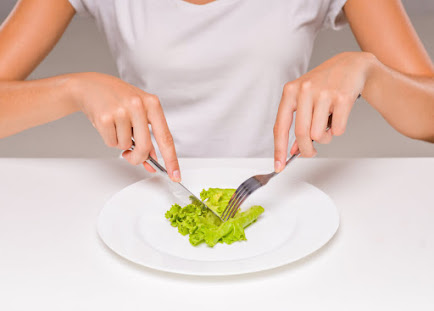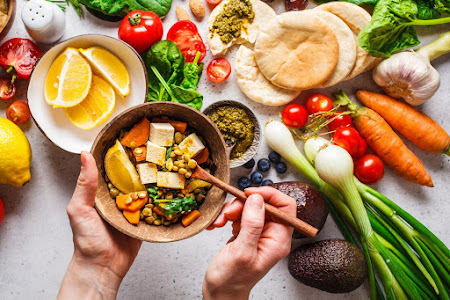Featured
- Get link
- X
- Other Apps
8 Facts You Need To Know About The Top Vegetarian Diet Myths
Probably the healthiest eating model you can obey is that of a vegetarian or vegan. However, people (notably meat eaters) or individuals who manage to like fast food regularly classify vegetarians, or those who practice the lifestyle, as being frail in a frame or anemic.
However, those are just two of the "myth-conceptions" that are observed by people who are not accustomed to eating vegetarian or vegan cuisine. In case, many of the organic fruits and vegetables that are featured in vegetarian menu plans are nutrition-rich and low in calories.
Plant diets allow elite nutrition and a great boon in well-being effects, such as lower risks for heart disease, cancer, and type 2 diabetes. The Adventist Health Study 2 revealed that vegans weigh an average of 30 pounds less than meat-eaters do. Consuming from the earth has excellent benefits, and it is necessary to know the facts and disregard the rumors.

The following myths and facts should support you in debunking some of the "myth-conceptions" connected with a vegetarian or vegan diet.
Myth 1: Vegetarian Diets Lack Iron, So Vegetarians, And Vegans Are Often Anemic
Fact: The vegetarian or vegan diet specialties such as iron-rich, anemic-unfriendly foods as mushrooms, dried apricots, dark green leafy vegetables, beans, and peas.
Myth 2: Vegetarians Do Not Get Adequate Protein
Fact: Many vegan foods, such as beans, and whole grains provide ample protein.
Myth 3: You Cannot Follow a Vegetarian Diet When You are Pregnant
Fact: Pregnant women discover a vegetarian diet the most reliable technique to give nutrition for their unborn baby and lose any extra pounds after giving birth. Not only do fresh fruit and veg, legumes, and grains give plenty in the way of iron and calcium, they also provide fiber, which cuts down on the digestive distress associated with pregnancy.

Myth 4: You Cannot Follow a Vegetarian Diet if You are Included in Sports
Fact: Many athletes happily follow a vegetarian diet and receive quality protein for muscles from foods such as beans, grains, tempeh, and soy products, which contribute just as much protein as animal products.
Other foods that enhance endurance and keep athletes lean and mean incorporate peanuts, walnuts, pistachios, raisins, cheese, eggs, sesame, sunflower, and pumpkin seeds, black beans, lentils, and chickpeas. Quinoa is an outstanding source of nutrition and protein.
Myth 5: It's Tough to Get Children to Follow a Vegetarian or Vegan Diet
Fact: Some of the foods that are highlighted in vegetarian or vegan menus incorporate peanut butter, popcorn, and a kind of delicious fruits, such as strawberries, mulberries, kiwi, grapes, apples, oranges, and pears. Tacos, wraps, and smoothies are vegan and vegetarian foods that are delicious and nutritional. Most kids will not turn down these healthful and delicious foods.
Myth 6: Switching to Vegan or Vegetarian Eating is Hard
Fact: You don't have to make a meaningful switch to a vegetarian or vegan lifestyle as adjusting to one can, in time, become pretty easy. Make a few adjustments to begin, and then keep combining until animal products are totally excluded.
For example, you might attempt making tacos with black beans rather than meat. You can exclude meat or chicken from stir-fry. The following changes will support you make a switch that is as successful as it is healthful. Mushrooms are good and make a vast main dish. Veggie burgers, tofu sausage, Tempeh bacon are all delicious vegetarian foods.

Myth 7: Vegetarians Do Not Prefer To Use Any Animal-based Products
Fact: Vegetarians are simply withdrawing meat to eat more healthily. They usually do not mind utilizing such animal by-products as wool or leather. Vegans, on the additional hand, normally have given up both meat and animal derivatives. Usually, vegans do not encourage the usage or consumption of any animal-derived products, including, honey, and wool, silk, and leather. Veganism is more of a philosophy than a diet.
Myth 8: Vegetarians and Vegans Frequently Require to Incorporate Supplements in their Diet
Fact: The only addition that is required to hold a vegan diet is B-12, which is discovered only in red meat, fish, dairy, and eggs. Otherwise, vegetarians and vegans get plenty in the way of all the needed vitamins (B-grouping, A, E, C) through grains, vegetables and fruits, and legumes. Many vegetarian and vegan foods are also rich in iron and calcium.
- Get link
- X
- Other Apps

